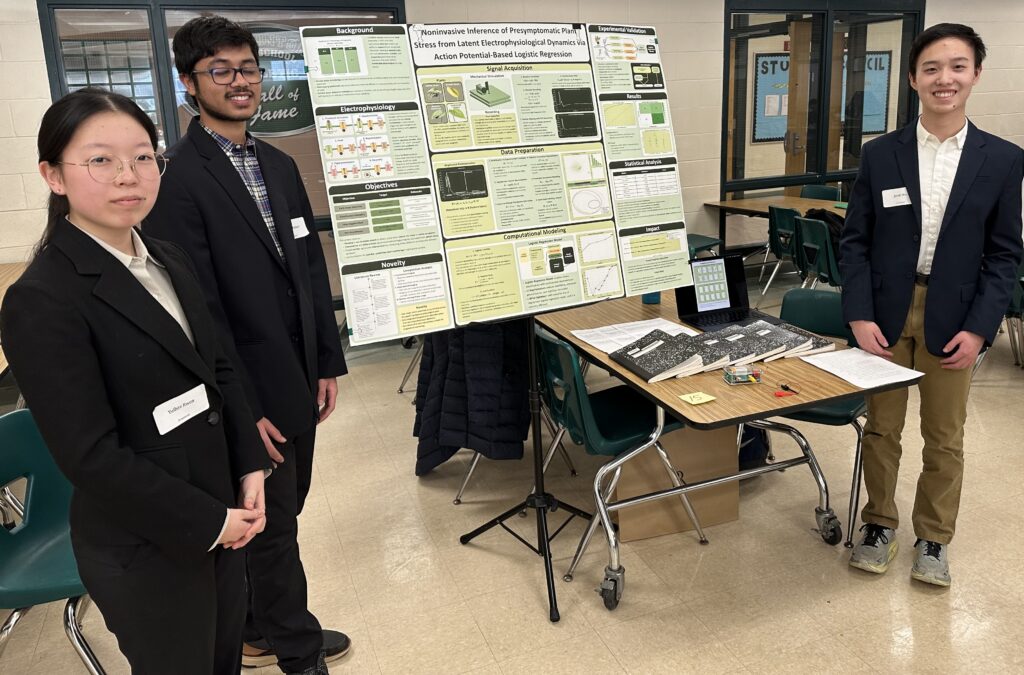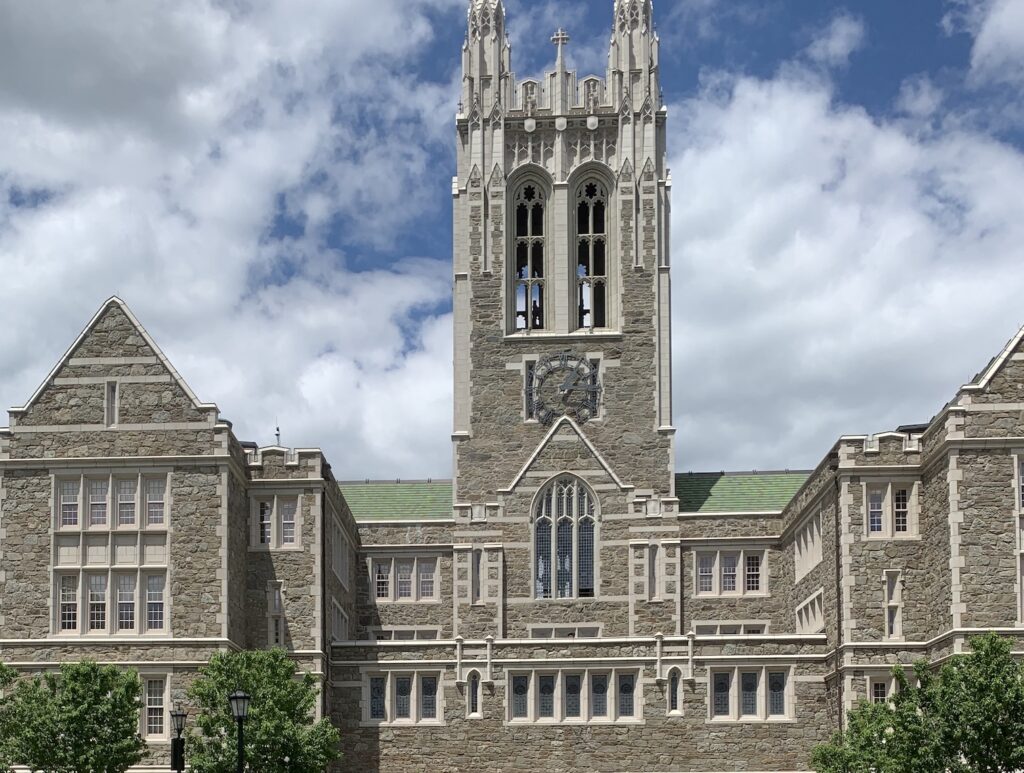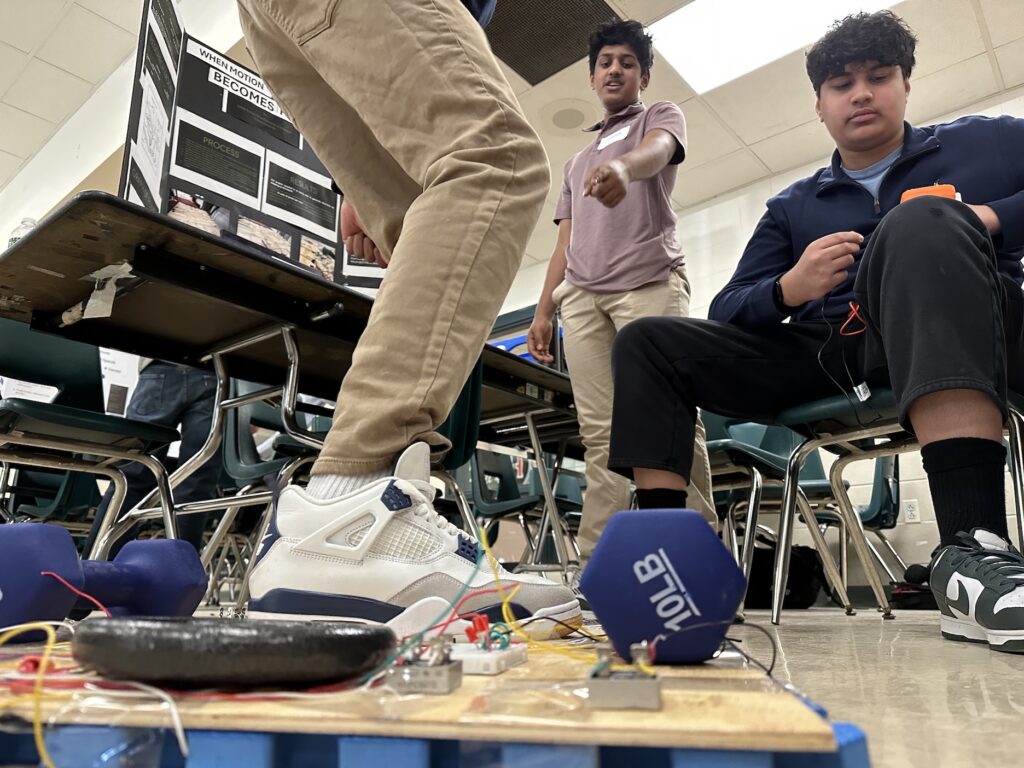
This map indicates the changes at Hopkins School.
At Hopkins School, parents and students will experience changes to the approach for drop-offs, the exterior site and different parking configurations resulting from the ongoing addition/renovation project.
During Thursday night’s School Committee meeting, Chris Eberly, Vertex project manager, and Matt Cotter, Hopkins principal, described the current plans. Parents will be updated on the website as well as through email communications.
Eberly said the start of school during a construction project is an exciting but stressful time.
He noted that instead of having 14 spaces in the north lot and 72 spaces at the back of the school, there will be 46 spaces available up front.
Users with disabilities will have handicapped spaces in the north lot with a straight path for them leading to the building.
Eberly pointed out features of the current configuration including a paved play area protected by Jersey barriers and a grassy area for a mix of physical education and recess uses.
Also, a construction fence will be in place along with a paved path going around it to access fields and an assembly area for fire drills. To address issues on a temporary basis, crews have added Jersey barriers in a continuous path along the bus lane.
Eberly explained parents will follow in a single lane to drop off students, now turning right into the area where the grass ends. He said there will be a short, paved area like an emergency lane. This space will be used if a car is having an issue and needs to take more time for some reason.
“Rather than hold up the line, they can pull over and wait in that small paved area,” Eberly explained, with staff there controlling bypassing cars.
Leaving, cars will pull out into the loop road and continue one way all around it. There will be a supervised two-way road in the last section with signage and directed traffic on a short-term basis.
Eberly noted that for the first few weeks, some of the construction will be noisy as workers remove rocks to prepare to build up the foundation and begin to put in geothermal wells.
Cotter has experienced some of the sounds. “The rocks are the loud ones,” he said. The well work, more off in the distance, is not as disruptive.
Eberly said parents should “view it in context” if children go home and say, ‘The entire building is shaking,’ though they may feel some movement.
The principal said the district has purchased a cover layer for the windows that lets light in but will stop students from looking out and trying to see what is going on.
Responding to School Committee member Chris Masters, Eberly said it will be winter before the shape of the building starts becoming visible. In the spring, “It will start to look like a building,” he said, but warned, “There is still a whole bunch of stuff on the inside to do that will take a long time.”
He added that the “aggressive focused parts of work” are slated in the summers with a hard deadline set.
Cotter added a decision was made to prioritize the parking lots this summer.
Cell phones, vaping in handbooks review
All building administrators appeared before the board to review changes and additions to student handbooks.
Cell phone use, vaping, disciplinary measures and attendance at after school or evening events after missing classes were common themes.
At the elementary level, Cotter said cell phones are more of an issue for fourth and fifth graders.
Elementary administrators prefer phones are stored in lockers during the school day. They can be confiscated by teachers if they are causing a disruption in class.
Elmwood School Principal David Brauninger said second and third graders can become distracted wearing devices on wrists and taking photos, so administrators want to safeguard against that.
While it’s probably best to leave phones at home, Cotter said they serve a purpose for parents to connect with kids if, for example, they are walking home for the first time or going downtown.
Marathon Principal Lauren Dubeau spoke about how adjustments in the discipline/suspension policies are meant to coincide with the Department of Elementary and Secondary Education (DESE) standards. “Restorative practices” rather than punitive measures have been in effect with updated laws for a few years, she said.
Cotter noted that to participate in after school activities or evening events, a student must be in school for at least a half of that day.
At Hopkinton Middle School, Principal Matt Lefebvre said cell phones are the biggest distraction for students, and the staff wants to emphasize that the school is a “cell phone free space.” Phones are powered off during the day and given to teachers at the start of class.
For first offenses, staff takes devices and return them at the end of the day, and an email is sent home to parents. Second offenses result in an email sent home and the phones kept at the main office for a week, while third offenses mean that families, administrators and students meet to develop a management plan, and phones are turned into the main office for a designated time (to be determined).
To deal with students vaping, suspensions are not effective, Lefebvre said. Instead kids will learn about the dangers of vaping through a diversion program.
At the high school, Principal Evan Bishop said there would not be a total ban on cell phones. However, for the sake of consistency, all phones will be put in holders during class time, including when a student leaves to use the bathroom. There would be rare exceptions such as if phones are part of instruction.
Bishop said vape detectors are back in school bathrooms. Vaping and use of oral nicotine products are on the rise, he said, and infractions overall, including excessive tardiness, are better handled through alternatives to suspensions.
For example, Bishop talked about “highly structured” days or weeks when situations are not handled in a “cookie cutter” fashion. Instead, the administrator, students and parents come up with a plan working toward improved behavior that gradually gets rewarded with privileges (such as a cell phone) being restored.
He also reviewed a policy whereby senior students can park in designated lots via $200 permits that are issued by lottery. If spaces are available, juniors can obtain spaces by lottery as well.
However, Bishop said, administration is “tightening the process up” by having lined and numbered spaces. Disciplinary issues from the previous school year or excessive tardiness can impact a student’s ability to get a parking space.
“It is the big issue,” Bishop said, of parking.
Athletic Director Ricky Andrade spoke about several policies, including requiring students to be in school by 11:15 a.m. and the rest of the day to participate in athletics for that day.
He also set deadlines for students to join athletics and said they must pay the fee in full prior to their participation. This measure is necessary, he said, because students who join late often drop out soon after and stop showing up for practices.
“This will help coaches of non-cut sports manage their teams,” Andrade said.
Enrollment, inclusive sports on agenda
In other business, Superintendent Carol Cavanaugh described how quickly enrollment changes, with K-12 increasing from 4,128 to 4,154 students since Aug. 8.
Pre-K is up to 80, making overall enrollment total 4,234. She said the projection for June 2025 is 4,290 (or “56 students away”).
Lefebvre talked about Hopkinton becoming a Special Olympics Unified Champion School. Towards that designation, this fall, a pilot program will make bocce a unified accessible sport. Unified basketball also would start being offered at the middle school. Special Olympics will fund the coaches in the first year, but there will be stipend requests forthcoming next year, he said.
He estimated having a one-hour practice once per week for bocce would cost $560 for coaching, the amount club advisors typically earn.
School Committee members felt that stipend was low, noting the importance of inclusive sports.
“There’s got to be a way to make sure those people helping out these kids are taken care of and make it worth their while,” Masters said.





















0 Comments